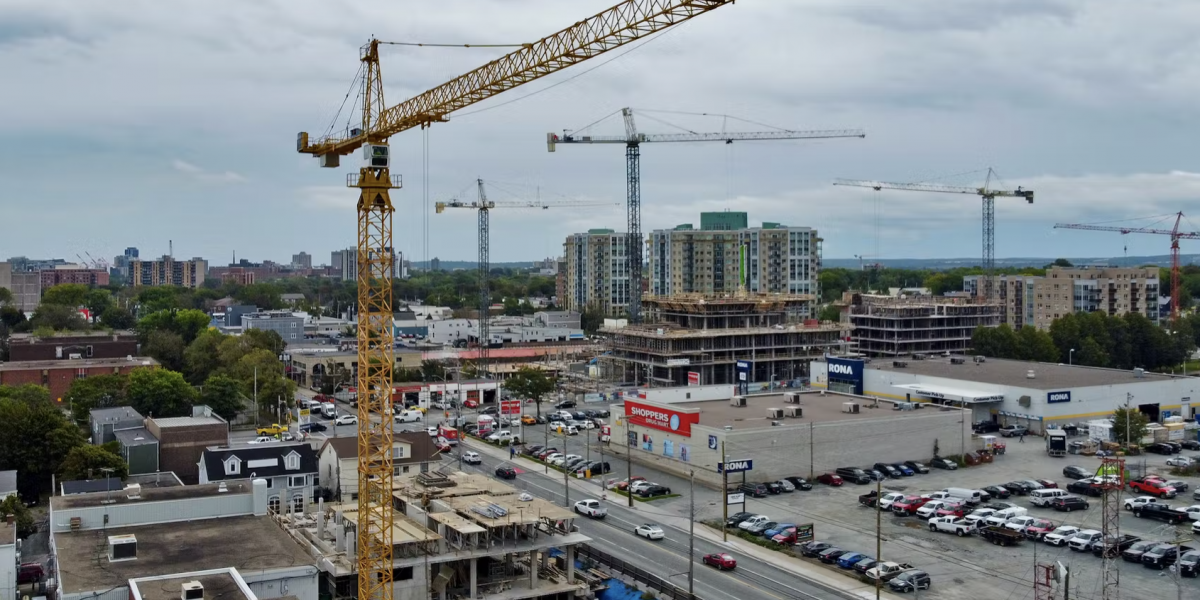The market doesn’t care about any of us. But it surely does not care about your grandma.
The people in power insist that the current housing crisis is simply a matter of supply and demand. But throwing money at developers, based on the idea that the market will correct itself, has made the situation much worse.
Ignoring the needs of seniors in particular is already having a significant impact here in Nova Scotia, where people aged 65 and over made up more than 22% of the total population in 2021. Without an immediate change in course, it’s going to get much worse.
Trickle down apartments
The current crisis in housing as it is playing out in Nova Scotia has been well described by Sam Krawec and others: rapidly increasing housing costs, low vacancy rates, no permanent system of rent control. There’s a general lack of protections for tenants, who are increasingly seen as the only thing standing between greedy landlords and the big payouts they feel entitled to.
The Conservative provincial government has fully embraced the commodification of housing. For them, the primary purpose of all property is as an investment to yield profit. So their spending on housing has prioritized rent supplements, which subsidize the profits of private landlords, and large payouts to private developers to fast-track for-profit housing. This includes a small portion of ambiguously-defined, time-limited “affordable” units, most of which won’t be built for another few years.
Premier Tim Houston, is trying to convince us that this is just a simple problem of supply and demand. But this is coming from a Bermuda-based accountant for 12 years who was named in the Paradise Papers, and whose transition team was chaired by the CEO of a prominent private development group. His government has argued that, by increasing the supply of housing, any housing, we can solve the current crisis. We are expected to believe that more homes in lakeside subdivisions and more luxury condos will let affordable apartments just trickle on down.
As market prices soared and public money flowed, many owners of actually-affordable rental units saw an opportunity: demolish low-rise affordable rental buildings, and use millions of dollars in public funds for new buildings. But the small number of “affordable” units in these buildings will rent for hundreds of dollars more than the units they replace.
Nowhere to go
As you look out across the stand of construction cranes dotting the city, you can’t help but wonder where the people who lived in the buildings have gone. Across Nova Scotia, people 65 and over make up 22% of renter households and, not surprisingly, have the lowest household income of rental households compared to other age groups. More than 14,000 senior households who rent are paying more than 30% of their income on rent and utilities; 3400 are paying more than 50% of their income for housing.
The consequences of the government’s market-based approach to housing are starting to be seen on the caseloads of housing support agencies. Each year, the Point in Time (PiT) count survey is conducted across Canada to provide a one-day snapshot of the state of homelessness in communities. The most recent count for the Halifax Regional Municipality (HRM) found that a growing number of seniors in the city are becoming homeless for the first time in their lives. In the HRM there were 586 people without a safe, permanent address; 15% or around 87 of these people were over the age of 60. Of those who were first homeless in the past 12 months, 26% were seniors.
Living on limited retirement and pension income and government support provides no way to keep up with rents that, according to rentals.ca, are up 25% in Nova Scotia year over year. And when your home disappears into a hole in the ground to put money in someone else’s pocket, there aren’t many options left.
Housing is a right, profit is not
Even with the significant amount of public investment in housing over the past few years, across the country we are losing more affordable units than we gain. As an out-of-touch Conservative government pats itself on the back for all the cranes in the sky, community agencies across the province are sounding the alarm while soliciting donations of tents and sleeping bags.It should be obvious that we need to change the way we think about housing.
Housing is a human right that cannot be left to the whims of the market. In 2015, a housing task force looking at the HRM identified the need to support housing developments that match the needs of the population–and in particular, for growing, high-need populations like seniors. At that time, even though nearly half of the public housing stock in HRM was mandated for seniors, more than half of those still on the waiting list for public housing were 65 years and over.
A market-based solution is no solution at all
The cranes in the sky are no comfort for the seniors experiencing homelessness, or the elderly renter households worried about having nowhere to go when the temporary rent cap disappears next year. With the recently-announced $351 million dollar surplus there is an opportunity for the Nova Scotia government to purchase some remaining affordable rental housing to protect it from the whims of the market.
Public investment in the rapid expansion of non-market, affordable housing is the only way to ensure seniors in Nova Scotia have affordable homes where they can safely age in place.
We need to start investing in housing that has the primary purpose of being housing rather than treating the building as an asset, and the people inside it as disposable.
The market and its cheerleaders don’t care about your grandma, but we definitely should.
Did you like this article? Help us produce more like it by donating $1, $2, or $5. Donate

